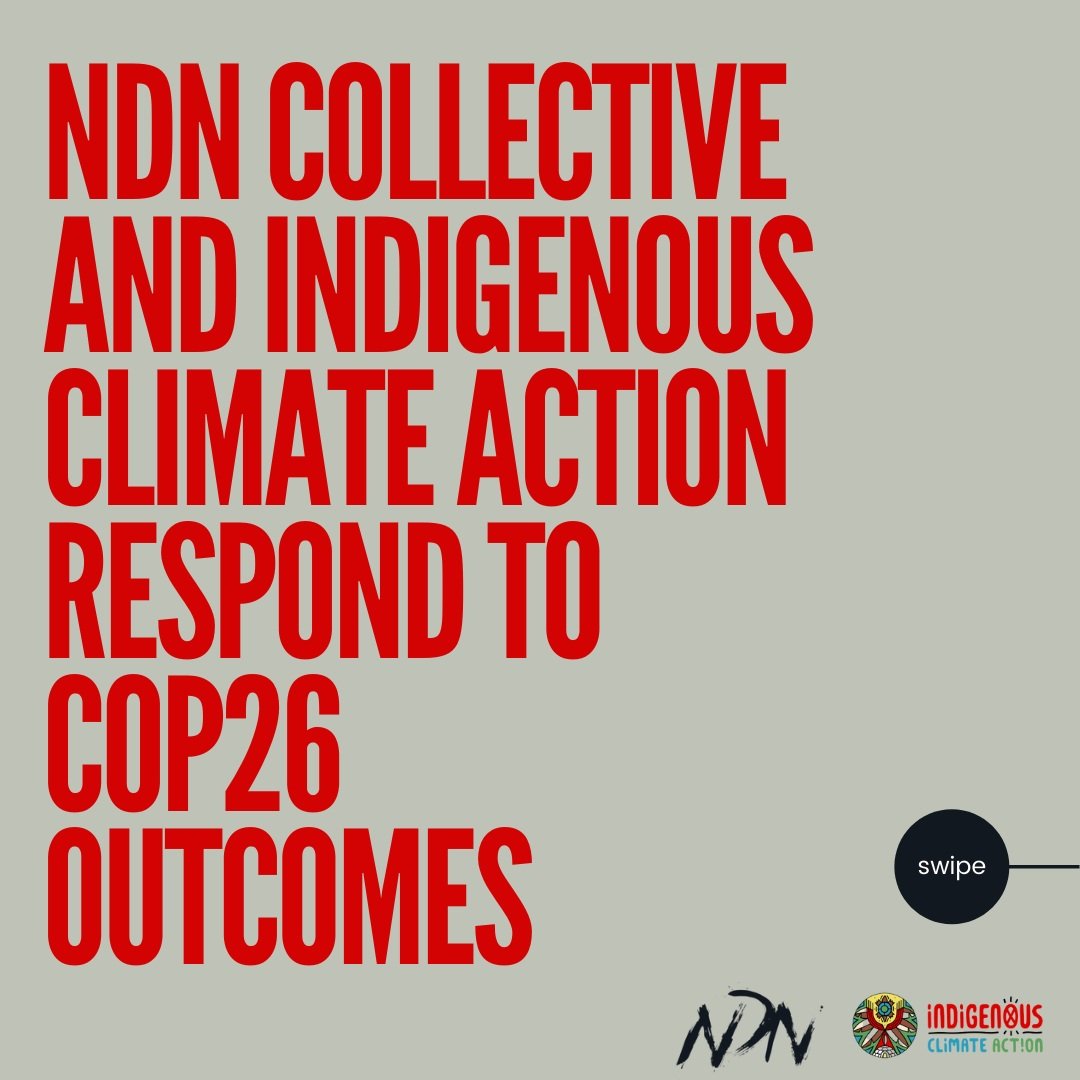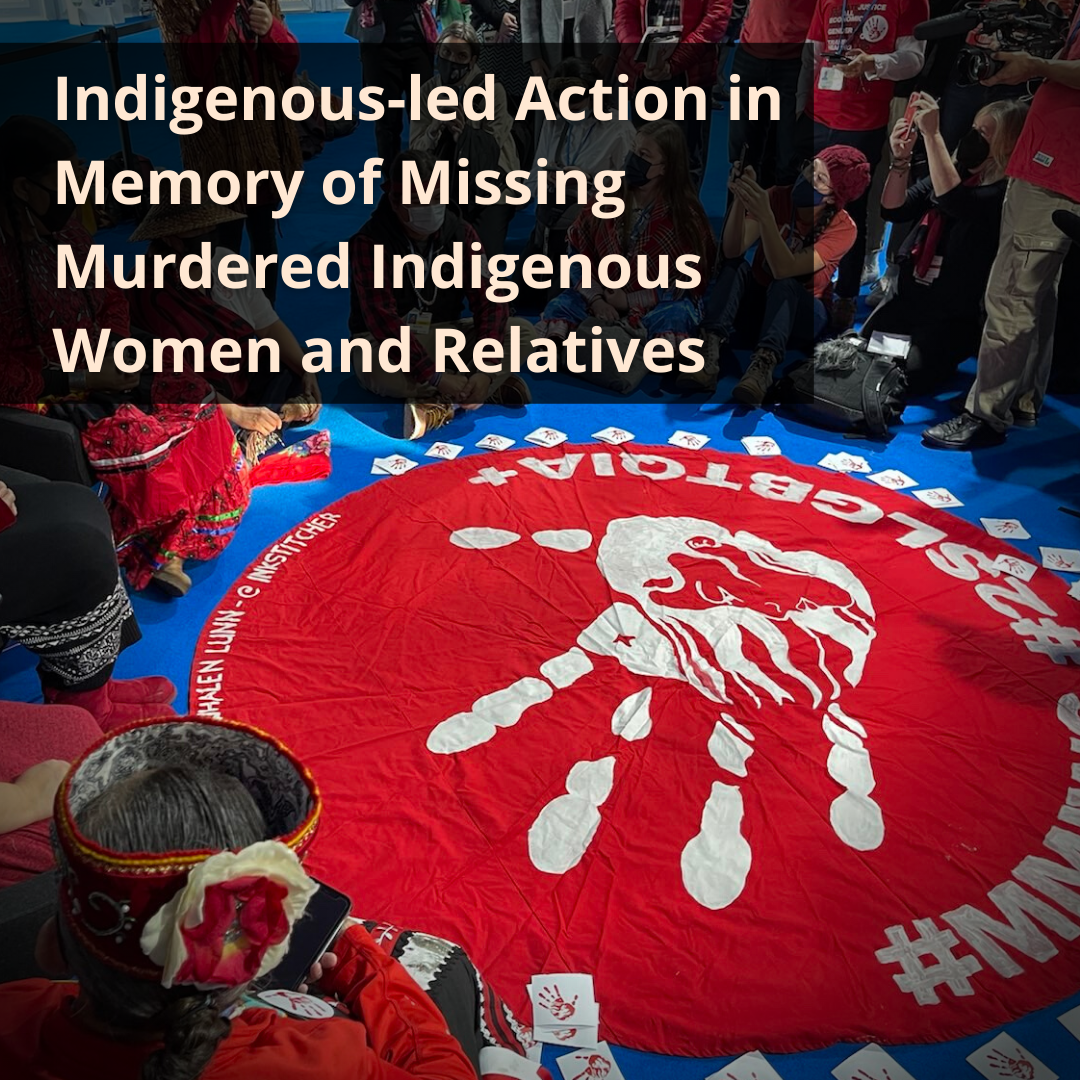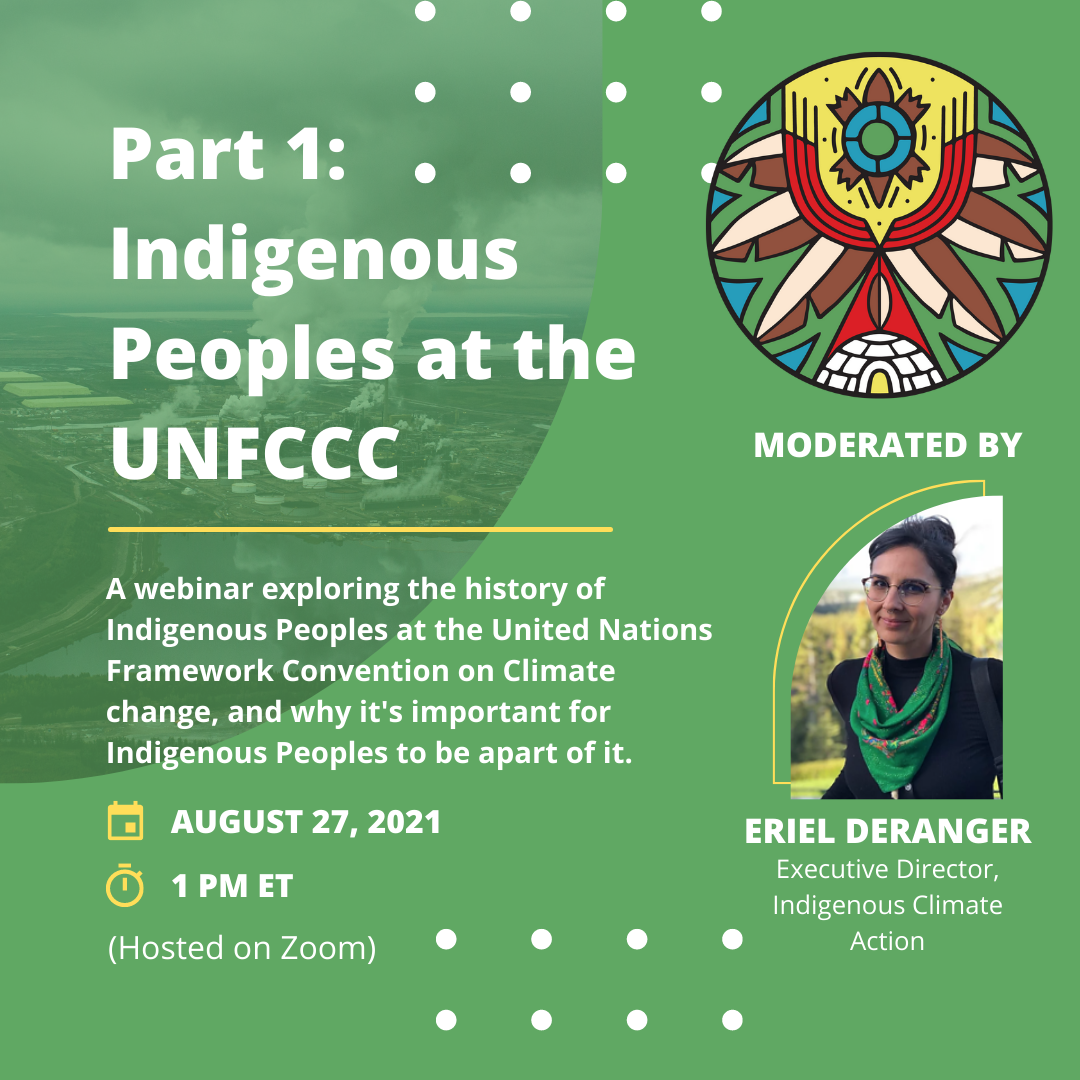ICA at the Conference of the Parties at the United Nations Framework Convention on Climate Change (COP26)
in Glasgow, Scotland
The latest from ICA delegation at COP26
Follow our journey.
Images will be updated frequently here and Flickr.
All images must be credited to the photographer(s); credits can be found in the image descriptions on Flickr.
Our Delegation
This year is Indigenous Climate Action’s largest delegation to date, with over 15 change-makers on the ground in Glasgow and an at-home team to facilitate coverage and support.
Our Care Team
This year delegation is supported by a care team that aims to uplift healing justice and ensure the spirits, hearts and minds of the team are nurtured and cared for.
For inquiries, please contact Erin Blondeau: erin@indigenousclimateaction.com
What is COP26?
The United Nations Framework Convention on Climate Change (UNFCCC) is an international response to climate change. It is an agreement between 196 Nation States to outline obligations for how to combat climate change. It was signed at the Earth Summit in Rio de Janeiro in 1992 and came into force in 1994.
Under the UNFCCC process, the United Nations began hosting a yearly UN Climate Change Conference to serve as the formal meeting of the UNFCCC Parties (Nation States) and became known as Conferences of the Parties (COP). The first meeting was held in Berlin in 1995, known as COP1. This year is COP26 where the Parties will be meeting in Glasgow, Scotland from October 31st to November 12th.
The UNFCCC was established before the affirmation of the United Nations Declaration on the Rights of Indigenous Peoples (UNDRIP), and thus advocates for Indigenous rights and sovereignty have had to work extremely hard to ensure Indigenous leadership is heard with respect to creating climate solutions.
This COP is considered one of the most important COP’s in history because of the urgency and extent of the climate crisis. Earlier this year the IPCC released its sixth report highlighting that we are running out of time to effectively address the climate crisis and we need aggressive and transformative action now. This year, Nations will be negotiating Article 6, the only remaining article of the Paris Agreement to be agreed upon. Article 6 proposes the development of a global carbon market mechanism so Nations can trade carbon, essentially creating a new market based approach that doesn’t require direct reduction in emissions. This is a huge concern for many Indigenous peoples and human rights organizations due to the fact that this global system would allow big polluters to continue to buy their way out of reducing emissions and ultimately continuing to develop fossil fuels and violate human, environmental and Indigenous rights.
Why are we going to COP26?
The original purpose of these international gatherings is for Nation State leaders (colonial governments) to come together to assess progress in dealing with climate change, negotiate tenets of international conventions and declarations, and establish legally binding obligations to reduce greenhouse gas emissions.
Indigenous Peoples and civil society have long criticized this process and every year there is organizing of Indigenous Peoples and grassroots groups inside the negotiations and outside of the official space to influence government and the outcomes. Members of the ICA network have been engaged in COP spaces for many years, highlighting the limitations of this Nation State centered approach and advocating for the inclusion of Indigenous rights and sovereignty within the process with many Indigenous peoples from across the globe.
These past efforts have highlighted the power of our people, successfully disrupting plans for carbon market mechanisms and other false solutions that allow for colonial powers to maintain their positions of control over the world’s resources.
This year, ICA is supporting a delegation of over 15 change makers to add to the movement to confront the systems of colonialism as root causes of the climate crisis and emphasize the importance of redistributing wealth and decision-making power to Indigenous peoples taking action for climate solutions.
What are our key objectives?
Our team intends to join forces with other Indigenous-led groups and allies in climate justice to influence the outcomes of COP26 to ensure respect for Indigenous rights and sovereignty are at the centre of global climate solutions. Our team will be participating in events, policy negotiations, and amplifying voices to uplift respect for Indigenous rights as climate solutions. We intend to raise concerns regarding proposed false solutions such as Nature-based Solutions, Carbon Markets and the proliferation of energy sources like fossil fuels and nuclear power.
ICA is attending this COP as part of our goal to support Indigenous Climate Leadership by creating opportunities for other Indigenous peoples, including youth delegates, to attend and learn about the UNFCCC process, civil society responses, critique and mobilizations, share their unique experiences, and build the capacity of future Indigenous climate leaders.
Some members of our delegation will also be participating in the Indigenous Peoples’ Caucus, crafting interventions, reactions and statements to the negotiations, and engaging with State leaders.
We will be leveraging our research with decolonizing policy, false solutions, nature based solutions and Indigenous resistance against carbon to emphasize how critical it is for Indigenous leadership on climate solutions to be respected.
For more insight on ICA’s participation at COP26, check out our webinars here.




















































